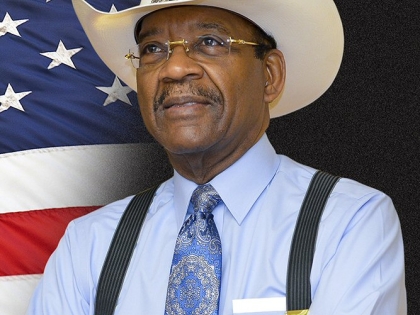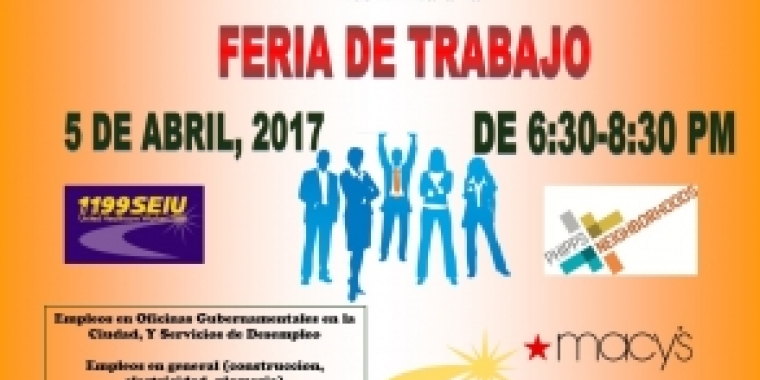
Senate Bill 6087
Ruben Diaz
January 10, 2012
For your information, this is a bill that has been introduced in the Senate by Senator Martin Golden and so far cosponsored by me and six other senators. If passed and signed into law by Governor Cuomo, this bill will allow all churches to use school buildings and school sites for religious meetings and worship when school is not in session in New York State. We are working very hard to get more senators to sign onto this bill.
Yours Truly,
State Senator Rubén Díaz (SD 32)
SUMMARY:
S6087 GOLDEN Same as A 8800 Castro (MS)
GOLDEN, DIAZ, GALLIVAN, LANZA, LIBOUS, MAZIARZ, SMITH, ZELDIN
Amd S414, Ed L
Authorizes the use of school buildings and school sites for religious meetings and worship when not in use for school purposes or when such service or worship is deemed not disruptive of normal school operations.
________________________________________
SPONSORS MEMO:
NEW YORK STATE SENATE
INTRODUCER'S MEMORANDUM IN SUPPORT
submitted in accordance with Senate Rule VI. Sec 1
BILL NUMBER: S6087
SPONSOR: GOLDEN
TITLE OF BILL:
An act to amend the education law, in relation to authorizing religious
meetings and worship in school buildings and school sites
PURPOSE OR GENERAL IDEA OF BILL:
The purpose of the bill is to authorize the use of school buildings and
school sites for religious meetings and worship when not in use for
school purposes.
SUMMARY OF SPECIFIC PROVISIONS:
Section 1 amends the opening paragraph and paragraph (c) of subdivision
1 of section 414 of the education law, the opening paragraph as amended
by chapter 369 of the laws of 1977 and paragraph (c) as amended by chap-
ter 345 of the laws of 2009, are amended to include:
The City of New York and community school boards and;
A provision that allows religious meetings to include, but not limited
to: meetings, services, and worship.
JUSTIFICATION:
This bill would prevent school districts from excluding groups from
meeting on school property because of the religious content or viewpoint
of their speech, including allowing religious worship services.
Currently, State Education Law allows for social, civic and recreational
meetings and entertainment on school property, as well as other uses
pertaining to the welfare of the community. State law further holds that
such meetings, entertainment and uses shall be nonexclusive and shall be
open to the general public. However, certain groups or organizations are
not always allowed to hold the types of meetings seemingly envisioned
herein, including those with religious content or viewpoints.
For example, several years ago, a U.S. appeals court ruled that the
Bronx Household of Faith church ("Bronx Household"), based in New York
City, was not permitted to use space in a Bronx public middle school for
its Sunday morning worship service. Since then, however, the United
States Supreme Court ruled in Good News Club vs. Milford Central School
that it was unconstitutional for a public school district in upstate New
York to exclude from its facilities "a private Christian organization
for children;u and the Supreme Court further held in the Good News Club
case that "by denying the club access to the school's limited public
forum on the ground that the club was religious in nature, Milford
discriminated against the club because of its religious viewpoint in
violation of the free speech clause.
In light of Milford, Bronx Household re-petitioned the U.S. appeals
court, which again upheld the school's policy banning the use of its
space for religious worship services, reasoning that "While the conduct
of religious services undoubtedly includes expressions of a religious
point of view, it is not the expression of that point of view that is
prohibited by the rule. Prayer, religious expression of devotion to God,
and the singing of hymns, whether done by a person or group, do not
constitute the conduct of worship services. These activities are not
excluded.
Groups like Bronx Household should be allowed to hold and conduct such
meetings, even in the event that such meetings include religious content
or views in their speech, so long as these meetings are open to the
general public. Some school districts have excluded groups and have
thereby acted to regulate free speech and the conduct of such members of
the public, potentially in violation of the First Amendment to the
Constitution of the United States. This bill seeks to protect such
organizations from these actions.
PRIOR LEGISLATIVE HISTORY:
(Unknown)
FISCAL IMPLICATIONS:
None to the state.
EFFECTIVE DATE:
This act shall take effect immediately.
Share this Article or Press Release
Newsroom
Go to Newsroom
OFICIALES ELECTOS ANUNCIAN 2DA FERIA DE TRABAJO
March 30, 2017
